
Working Together
Collaboration brings musical to life despite challenges of COVID-19
Students performing a vignette from Working at the Kasser Theater.
When a global pandemic disrupted live performances and classroom schedules last fall, an interdepartmental collaboration between students in Theatre and Dance, and Television Production allowed the show to go on.
Together, they produced Working, the 1978 Broadway musical based on Studs Terkel’s book, Working: People Talk About What They Do All Day and How They Feel About What They Do, first published in 1974.
With its vignettes of individual workers’ toils – from farming to waitressing to welding – the show is almost ideally suited for a hybrid production, one that could be rehearsed and recorded via Zoom or, for some musical numbers, in outdoor and/or socially distanced or masked groups.
“We adopted protocols for the pandemic into the design and the blocking of our show,” says Peter Flynn, associate professor of Theatre and Dance. “So everybody, unless they’re shooting remotely, unless they’re on Zoom or everybody’s in a mask, everybody stays socially distant. There are even some characters, because of the jobs that they are representing onstage, who wear masks and gloves.”
Working’s tales of the trials and tribulations of everyday workers also made it the perfect theatrical vehicle for addressing the plight of essential laborers during the pandemic. Flynn worked with his associate director, Chanel Johnson ’20, to update the musical, with the blessing of the legendary Stephen Schwartz, who adapted the book for Broadway 43 years ago.
“We formulated questions and put out an email to our entire Musical Theatre student body and said, ‘Whether you’re involved in the show or not, we’d like to interview any family members that have been directly affected by quarantine or by the pandemic.’ And we got a flurry of emails back.”
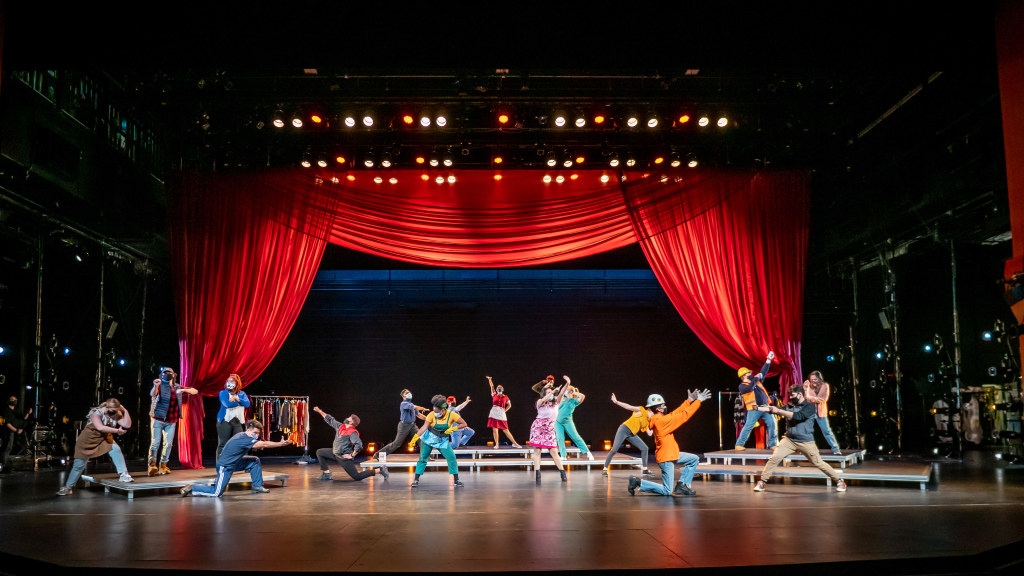
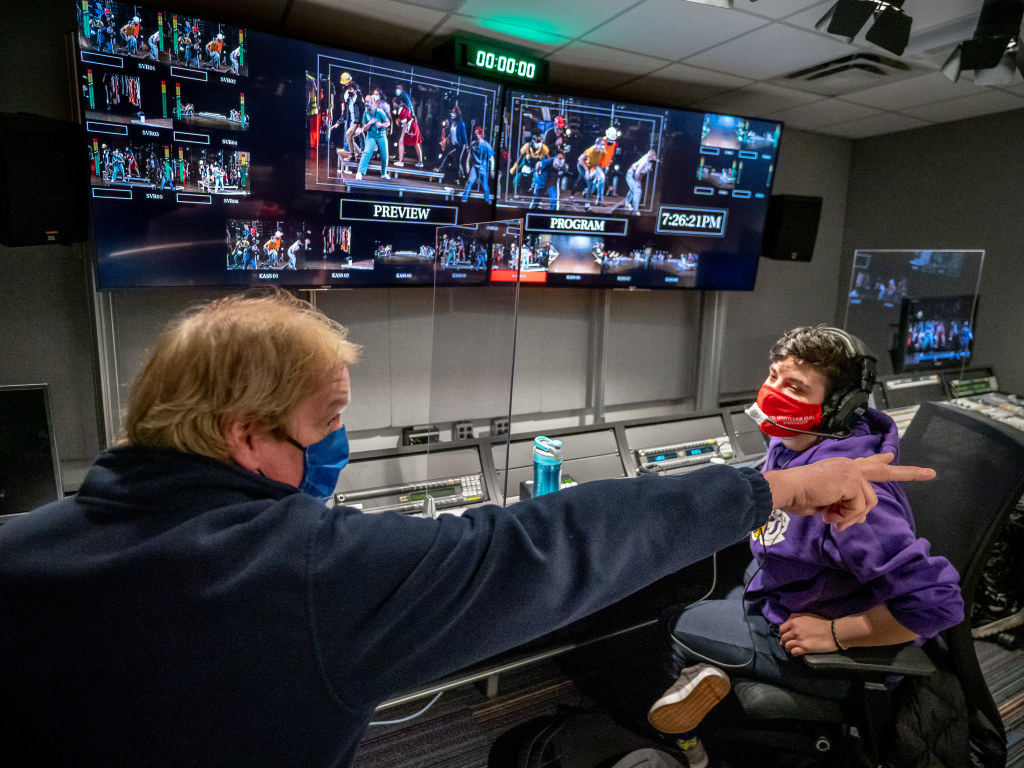
As a result, Flynn explains, “We interviewed a teacher, three business owners, a pilot and a physician’s assistant.” Then Flynn and Johnson turned each of those interviews into a monologue using a fictional name for the character.
At the same time, Flynn began coordinating with School of Communication and Media Professor Stuart MacLelland on the project, which proved rewarding for students in both programs.
“It’s a huge success story,” says MacLelland, who enlisted students from his Advanced Television Production and Television Production Company classes.
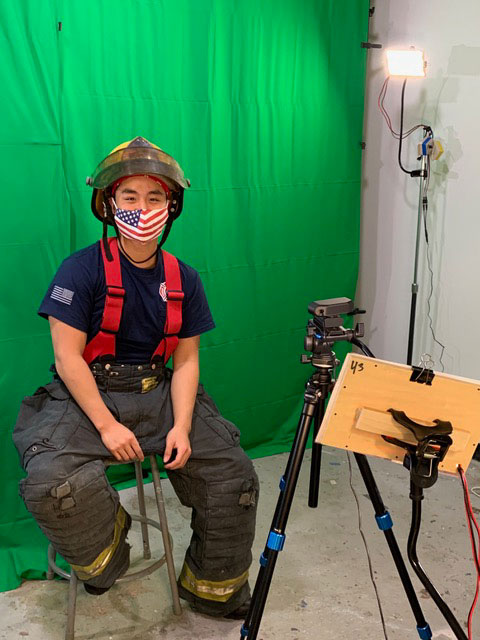
“Most of the time, I give my students an assignment to find acts or talent. But we weren’t going to be able to put 20 people in our studio and control rooms, so I started looking around for content.”
The John J. Cali School of Music and the Department of Theatre and Dance presented great opportunities. Besides filming a Kasser main stage production of A Chorus Line using robotic cameras and the University Singers performing Ain’t No Grave in the Amphitheater, MacLelland and his students went to work on Working.
“It’s been a really good partnership,” says MacLelland. “Montclair State has always been great at broadcast journalism and documentary.” Working with the Cali School and Musical Theatre, however, represents “a whole new world” for Television Production students. “When they are watching the rehearsal process and see that side of show business, we’re providing the broadest foundation for any kind of media arts and performance, making them more dimensional and marketable.”
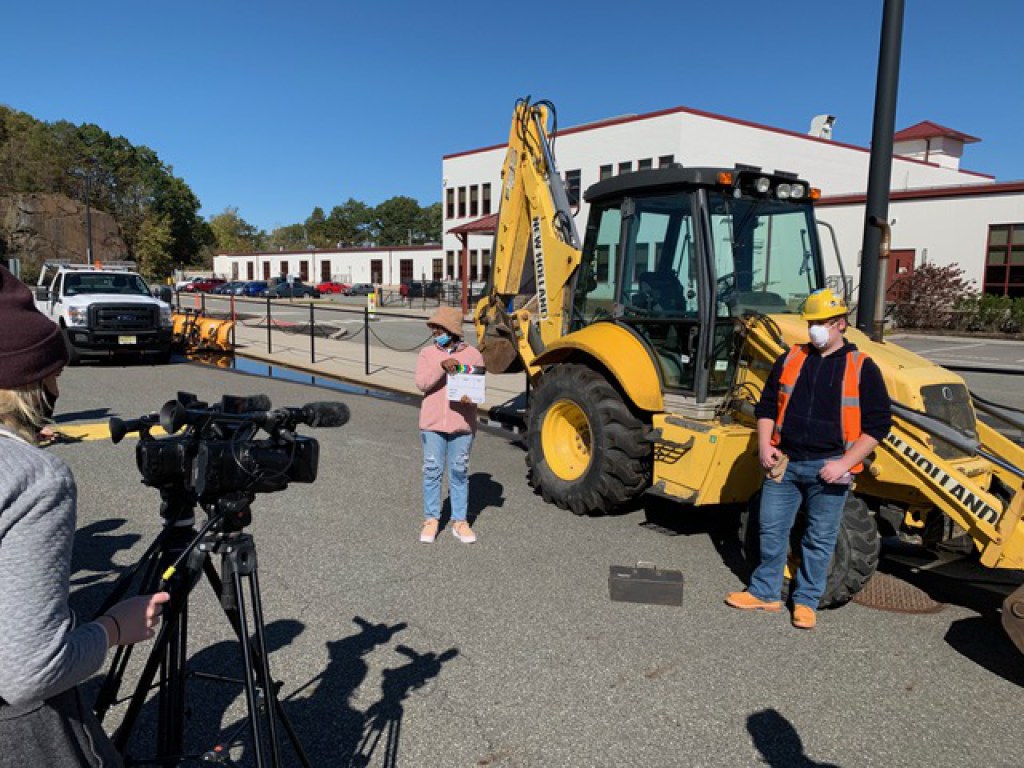
The University company for Working, which was routinely tested for COVID-19, shot scenes all over campus before needing to postpone production because of a positive COVID-19 test among the group in early November. A number called “Cleanin’ Women” was shot in the News Lab in the School of Communication and Media. “The Mason” was shot in the Amphitheater.
Major production numbers that open and close the show were rescheduled for filming in the spring semester – when Flynn and MacLelland felt it was safe to resume with the full cast and everyone in the company was cleared according to the University’s COVID-19 protocols. “It’s an Art,” about a waitress, was shot in the Red Hawk Diner in late February.
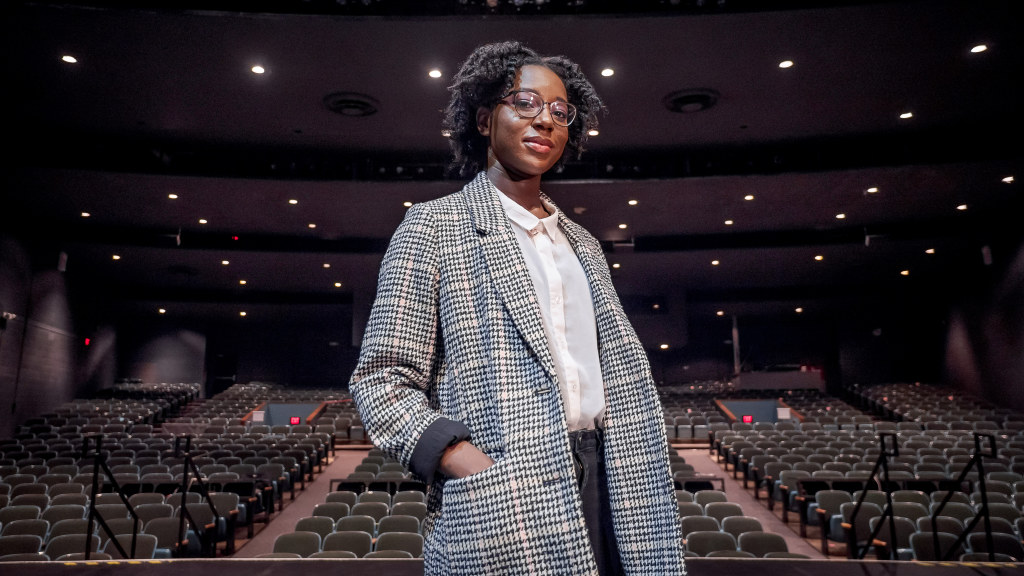
Other scenes were recorded using Zoom or with green screens.
“It’s been very weird doing a show during COVID,” says Johnson, who graduated in December 2020. “Luckily, we’ve been able to have a lot of one-on-one time with the actors in person and over Zoom during the process. Zoom rehearsals have proven incredibly effective. We can meet as a full company or have five different breakout rooms rehearsing at the same time.”

Having to always think about social distancing and other COVID-19 safety measures made everything more difficult, says Johnson, who worked with choreographer Hollie Wright and music director Sarah Brett England. “But we were able to create a show in the middle of a global pandemic, which I think is pretty spectacular.” Johnson credits MacLelland and his students: “They’ve been really incredible throughout all of this. Major props to them for all the hard work they put into this show!”
Beyond all the artistic considerations, the timely and fitting theme of the musical was not lost on anyone involved. Flynn notes, “For the very first time in a production of Working, there are monologues about people who do their jobs during a pandemic.” Musical Theatre major Grace Rivera ’23, who plays the waitress, says she is excited that the “subject of this show is the working class, a group of people that have been immensely affected by the pandemic. It gives them the chance to be in the spotlight and gives them credit for their contribution to the world we know today.”
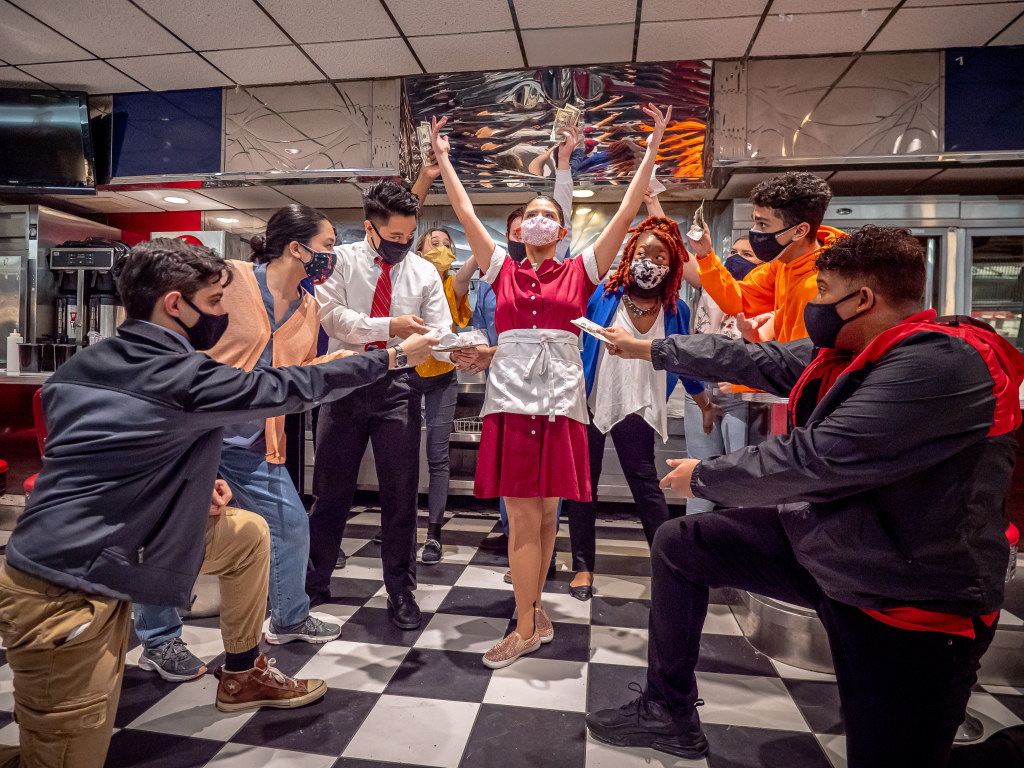
Rivera also is filled with gratitude for this very different musical theater experience. “It was insane to walk onto a set and see all these lights and cameras. When we shot ‘It’s an Art,’ we were able to see one of the takes in the Red Hawk Diner on campus, and it was honestly one of the coolest experiences. I seriously could not stop smiling because it felt so unreal – in the best way possible.”
Television and Digital Media major Carter Winner ’22 also appreciated the novel experience of working with Theatre and Dance. “I learned a lot about thinking on my feet. It was so great to cover such beautiful performances. It was so much fun to be a part of the team that got to do something so incredible, I’m so grateful.”
It’s an experience that they could not have had elsewhere.
“When most universities and their theater programs opted not to do shows during COVID-19,” Judith Evans, the costume shop supervisor for Theatre and Dance, points out, “Montclair State is producing creatively” – and safely.
Working debuted at the Department of Theatre and Dance Virtual Festival, an online portal that allows performance and presentation opportunities for Dance, Theatre, Musical Theatre and other students, and provides every audience member a front row seat to spectacular pre-recorded shows available for streaming. Visit peakperfs.org/virtual-festival.